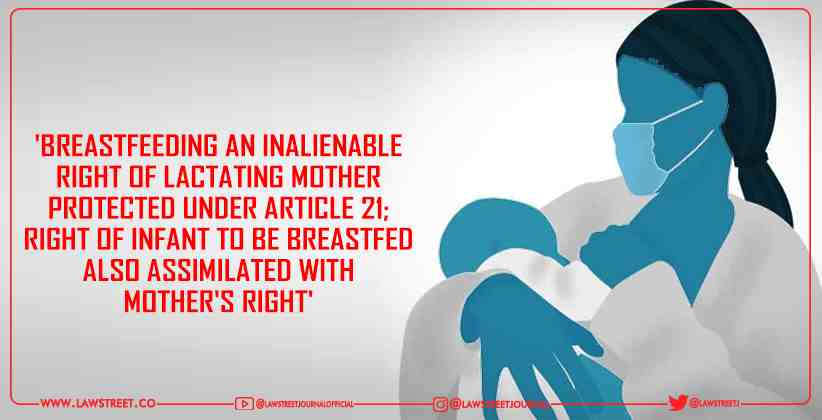According to the Karnataka High Court, breastfeeding a child is an important aspect of motherhood and is protected under the umbrella of Fundamental Rights guaranteed under Article 21 of the Indian Constitution.
In his order, Justice Krishna S Dixit stated, "In the light of domestic and international law, breastfeeding must be recognized as an inalienable right of the lactating mother; similarly, the right of the suckling infant to be breastfed must be assimilated with the mother's right; arguably, it is a case of concurrent rights; this important attribute of motherhood is protected under international law."
The court made this observation while deciding on a very unusual case in which the biological mother of a child who had been stolen from the maternity home shortly after birth had approached the court seeking the child's return from the foster mother. Previously, the mother had petitioned the court for a writ of habeas corpus, which resulted in the child's location being discovered.
While granting the petition, the court stated that custody of the minor child should be given to the genetic mother. It stated,
"Between the genetic mother and the foster mother, the former's claim should take precedence over the latter, subject to all just exceptions, which the foster mother's case does not appear to fall into; this augurs well with reason, law, and justice."
Furthermore, the court stated that in such cases, courts cannot establish blanket rules because the elements involved are so complex. "However, a broad rule is that in matters of child custody, the claim of strangers should yield to the claim of the genetic parents."
The court referred to the International Convention on the Rights of the Child, 1989, Article 25 (2) of the Universal Declaration of Human Rights, and Article 24(1) of the International Covenant on Civil and Political Rights (ICCPR, 1966), which recognizes the right of the child to the measures of protection required by its status as a minor, as well as the correlative provisions. Sections 3(ix) and 2(9) of the Juvenile Justice (Care and Protection of Children) Act 2015 were also taken into account.
"It is unfortunate that this pretty child has remained un-breastfed for no fault of its own, its lactating mother having had no access to it until now; such things should never happen in a civilised society," it continued.
Advocate Venkatesh Prasad R, representing the foster mother, argued that his client should be allowed to keep custody of the child in accordance with what Devaki Maa allegedly did qua Yashoda Maa, as mentioned in Bhagavatam.
The court stated, "No authoritative text of the episode is produced to show that there was any dispute of the kind between these two women of Grace in the era that is long gone by; in such matters, unsubstantiated episodes from some history or mythology do not much guide the decision-making process; ordinarily, scriptures cannot be cited as precedents or as instruments having force of law, notwithstood."
Rejecting the foster mother's claim that she does not have any children, whereas the genetic mother already has two at home, and thus the custody of this child should be granted to her.
"This is ludicrous; children are not chattel for being apportioned between their genetic mother and a stranger on the basis of numerical abundance; the principle of distributive abundance; the principle of distributive justice which intends to bridge the gap between 'haves and have nots' is not invocable, at least in this case," the court stated.
It went on to say, "It is common knowledge consistent without experience that a genetic mother treats all her children as being an integral part of her body & soul, regardless of what the children do to her; the foster mother's contention is abhorrent to the very concept of motherhood."
Following the court's intervention, the foster mother graciously returned custody of the child to the child's genetic parents.
The biological mother, too, stated with grace that the foster mother may see the child whenever she so desires.
As the court pointed out, "Such kind gestures from two women from two different religious backgrounds are unusual in today's world. As a result, this legal battle for the custody of the lovely child comes to an end on a happy note, once and for all."
It was stated that there is and shall be no cause of action in civil or criminal law against the foster parents for the alleged kidnapping of the child.








